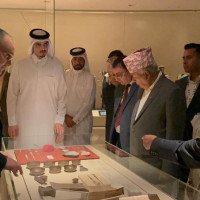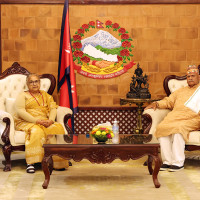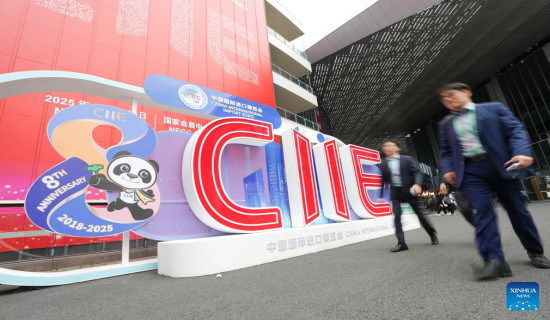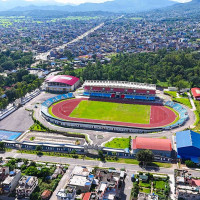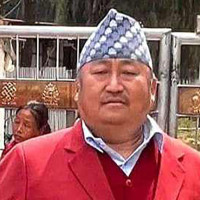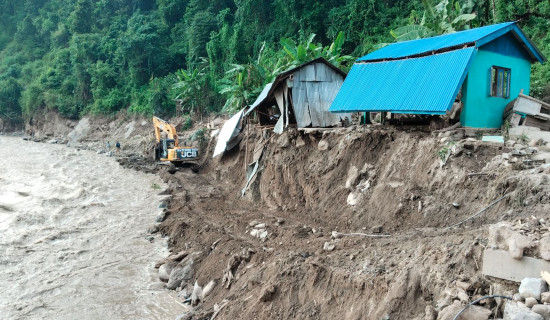- Thursday, 6 November 2025
Gen Z Nepalis find politics uninspiring
By Pallav Bhusal,Kathmandu, July 19: Gen Z Nepalis, born in the era of the internet and raised amidst constitutional upheaval, are coming of age, and into politics.
“Our political structure is different from anywhere in the world. We have never been colonised, and we have had multiple forms of democracy within our own internal system, from the Ranas to the monarchy. So, we are still in a transitional phase. The constitution is new, federalism is new, and governance systems are still maturing. Yes, there is dissatisfaction, but this is part of the process. The youth must not give up. They must engage more, not less,” said Mahesh Kumar Bartaula, Chief Whip of the CPN-UML, and a leader often branded a young face in politics.
He paused, reflecting on what appears to be a generational gap widening beneath Nepal’s political feet. “The energy and honesty that young people bring is needed in politics today more than ever. But they must also understand the structure. You don’t dismantle the house to fix a room,” he added.
The “house” he refers to, Nepal’s political establishment, has endured a civil war, the fall of the monarchy, a new constitution, and multiple changes in government. And now, it faces a new kind of uncertainty which is youth apathy.
Take 24-year-old Samir Shrestha from Kirtipur. A university graduate and café owner, politics, for him, is not merely uninspiring, it is untrustworthy.
“I have zero interest. It’s all instability and structured corruption. What’s the point of voting if the faces are the same and the outcome is always chaos?” Shrestha said.
Samir has never cast a vote. He says he might consider it if a visionary and non-corrupt leader emerges. But until then, the system, in his eyes, is too broken to be fixed by participation.
However, Hitesh KC, a 23-year-old from Darchula, who is both critical and hopeful. “There is instability in politics, yes, and that’s why there’s no real development. But I believe young leaders should emerge through established parties,” he said. “Especially in the rural areas like mine, people still believe in traditional parties. You can’t change the system from outside,” he added.
Hitesh voted in the last election and said he would vote again in the next. For him, engagement is not optional, it’s necessary. But he draws a line. “The candidate must be visionary. Just being young is not enough, although they are better than older and already tested ones” he said.
This tension, between engagement and disillusionment, between structure and change, is at the heart of Nepal’s Gen Z political experience. Unlike the revolutionary generation that took to the streets, or the transitional one that took to the ballots, today’s young people are more sceptical, more informed, and perhaps more fatigued by the system’s unmet promises.
“There is no single youth view. Some young people are actively involved in student unions or local campaigns. Others are completely disengaged. The challenge for political parties is to recognise this diversity and respond to it, because bare-minimum effort won’t work,” said Bartaula.
For Bartaula, the solution lies not in dismissing youth criticism but embracing it. “They are right to demand accountability. Many of them are more politically aware than we were at their age. But politics is also about patience, about process. We need to work with them, not expect miracles from them,” he said.
See Page 6
It’s a point well taken by many political parties, which are under pressure to rejuvenate their image and membership. “Change has to come from within. But change also needs direction, discipline and institutional memory. That’s what the older generation brings,” Bartaula added.
Yet the generational divide is real, and growing. Social media, civic education, migration, and joblessness have all reshaped how young Nepalis see their country and its leaders.
In urban areas especially, the view is increasingly bleak. “Most of my friends say the same thing. They feel powerless. They joke about politics, but no one really believes in it,” said Shrestha.
And that disbelief is dangerous, because democracy needs participation. When young people opt out, they leave space for old power to remain unchallenged. The answer may lie somewhere between Hitesh’s cautious optimism and Samir’s frustration. Between Bartaula’s defence of the system and the youth’s call for visionary change. It may lie in a future where politics is less about parties and more about people, where experience is respected, but not at the cost of integrity.
Until then, Nepal’s political class has a choice, adapt, or be abandoned by the very generation they once promised a new Nepal to. As the next election cycle looms, one thing is clear, Gen Z is watching.



-original-thumb.jpg)
